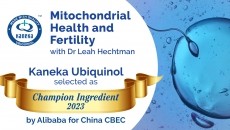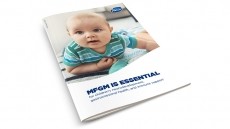Lutein safe but won’t help infant eye function, says EFSA
But EFSA’s Panel on Dietetic Products, Nutrition and Allergies (NDA) said lutein’s well-known and clinically backed eye health benefits were not proven.
“The Panel considers that the available data do not demonstrate that lutein addition to infant formulae and follow-on formulae offers any immediate or long-term benefit on eye function and development,” the NDA stated in its opinion.
Lutein is not added to infant formula or follow-on formula at any major level, the NDA said.
Pleased
A spokesperson for the company that made the submission, Wyeth Health, said the NDA’s eye health opinion was disappointing but the assessment process was not over.
“We are pleased EFSA has confirmed the safety of lutein and note that it does occur naturally in breast milk,” she told NutraIngredients.com from Wyeth’s Philadelphia office last night.
“The opinion goes to the European Commission now and we will be submitting further comment to that part of the process.”
Ingredient angle
Valérie de Bourayne, PhD, the European regulatory affairs manager for Kemin Health, whose ingredient was referenced in the opinion, wondered about the specificity of the eye health reference when the submission was not a health claim submission.
She said Kemin had submitted article 13 claims under the European nutrition and health claims regulation and was compiling an article 14 claim around eye health and so was somewhat taken aback to see the NDA give such an opinion when it was only asked for a safety opinion.
“Why comment on claims possibilities? It was not the purpose of this dossier,” de Bourayne wondered.
“We found this a little bit surprising but do not believe the negative opinion will result in negative publicity for lutein. EFSA is turning in negative opinions every day. Overall this is a good opinion. We wait now for the Commission and we never know what is going to happen with them.”
She said it was difficult to use an ingredient like lutein without employing a claim.
Lutein is a naturally occurring xanthophyll and oxycarotenoid. Carotenoids are primarily synthesised by photosynthetic plants and micro-organisms and lutein is one of the most abundant.
It occurs with the isomeric xanthophyll, zeaxanthin, in many foods, particularly vegetables and fruits.
This application referred to a “purified lutein” obtained by saponification from an oleoresin extracted with hexane from dried marigold flower (Tagetes erecta) petals and supplied by Kemin.












